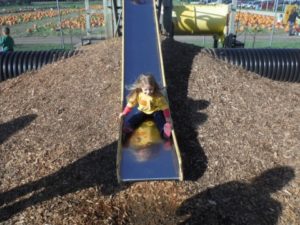 Structured fitness is an important part of a child’s development. It teaches children how to play by the rules, work as a team, and deal with winning and losing. Just as importantly, children need to be allowed to engage in their own independent activities without the influence or intervention of adults. This behavior is called free play.
Structured fitness is an important part of a child’s development. It teaches children how to play by the rules, work as a team, and deal with winning and losing. Just as importantly, children need to be allowed to engage in their own independent activities without the influence or intervention of adults. This behavior is called free play.
Consequences of Too Much Structured Play
Unfortunately, it seems that schools are moving more and more children away from free play in schools and into more structured activities. Studies have shown that the more structured play children are pushed into, the less developed they will be socially, mentally, and emotionally. There is also a greater risk of developing depression and anxiety.
Both free and structured play is important to a child’s development and overall well-being. Finding the right balance between the two will allow children to grow into well-rounded individuals.
The Benefits of Free Play
Free play allows children to explore their environment on their own. Without adults hovering and directing their play, children can use this time to be creative, take risks, and learn what does and does not work.
“Risky Play” Alleviates Anxiety
Free play includes risky play. Risky play is play that gives children the thrill of possible danger combined with the positive emotions associated with overcoming a fear. While allowing children to engage in risky play can be scary for the teachers responsible for their safety, recognizing that it is a necessary and healthy part of growing up can help alleviate the anxiety.
Risky play can include:
- Climbing trees
- Playing chase
- Jumping from heights
Typically, children are good at knowing their limits and by engaging in these risky behaviors, they can teach themselves how to conquer their fears. Just the same, it is important to remember to not push a child to do something they are not comfortable with. Doing so will only increase the fear and anxiety the child has towards the activity.
Since teachers are responsible for the children of others, there are concerns when it comes to how much risky play is acceptable on the playground. Not all parents are comfortable with the idea of their minimally supervised children running around with the possibility of getting hurt. Open conversation between parents and teachers is important in establishing trust and setting limits to what behavior is and is not acceptable.
Developing & Maturing Skills
Not only does free play allow children to learn their limits, it helps them develop and mature important skills, including:
- Social
- Cognitive
- Emotional
By learning how to get along and cooperate with others on their own through activities such as role-playing, children can become more self-directed and independent.
Learning How to Set & Achieve Goals
Being able to set and achieve their own goals will give children an important skill to apply in the classroom and in life. To teachers, there is nothing more exasperating than a student who does not take the initiative or has to be constantly told what to do. By learning how to self-direct, children can be trusted to step up and complete tasks on their own, often by finding creative solutions to the problems presented to them.



